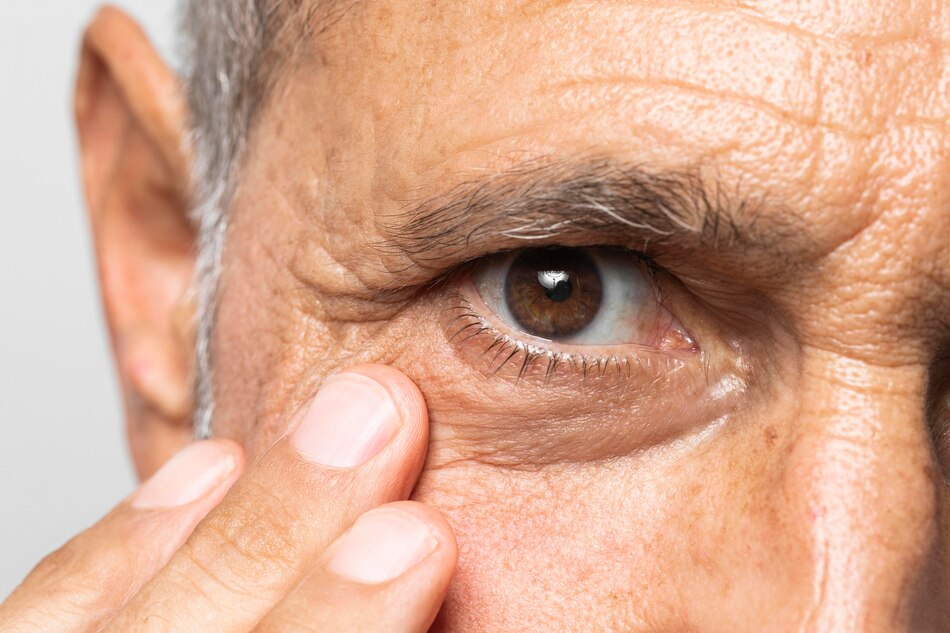Glaucoma is a progressive eye condition characterized by damage to the optic nerve, often linked to increased intraocular pressure (IOP). It’s one of the leading causes of irreversible blindness worldwide. While genetics and age are well-known risk factors, lifestyle choices—especially stress levels and sleep quality—are increasingly recognized as important contributors to disease progression. This article explores the intricate connections between stress, sleep, and eye pressure in glaucoma.
The Basics of Eye Pressure in Glaucoma
In a healthy eye, fluid called aqueous humor flows in and out, maintaining a stable internal pressure. In glaucoma, this fluid doesn’t drain properly, leading to elevated IOP. Over time, high IOP can damage the optic nerve, resulting in vision loss. Although some people develop glaucoma with normal eye pressure (normal-tension glaucoma), reducing IOP remains the cornerstone of treatment.
Stress and Eye Pressure: The Silent Link
Stress activates the body’s “fight or flight” response, releasing stress hormones like cortisol and adrenaline. While helpful in short bursts, chronic stress can wreak havoc on the body, including the eyes. Here’s how stress may impact eye pressure:
- Cortisol and Aqueous Humor Production: Cortisol, the primary stress hormone, has been shown to increase the production of aqueous humor in the eye. Higher fluid production can lead to increased IOP.
- Vascular Dysregulation: Stress can cause blood vessel constriction and reduced blood flow to the optic nerve. In glaucomatous eyes, which already suffer from impaired circulation, this can further compromise optic nerve health.
- Behavioral Triggers: Under stress, people may skip medications, avoid doctor visits, or engage in poor health habits like smoking—all of which can indirectly elevate IOP.
- Autonomic Nervous System Imbalance: Stress affects the autonomic nervous system, which plays a role in regulating IOP. An imbalance can disrupt the normal drainage of fluid from the eye.
Several studies have observed temporary spikes in IOP during periods of high psychological stress. More importantly, stress-related IOP changes can be difficult to detect during routine check-ups at eye hospital in Saligramam, as they may fluctuate throughout the day or week.
Sleep and Eye Pressure: Timing Matters
Sleep is essential for the body’s repair mechanisms, including eye health. Poor sleep quality or duration can influence IOP in several ways:
- Nocturnal Eye Pressure: IOP naturally fluctuates throughout the day and tends to be higher at night or early morning. For people who sleep face-down or on their side, eye pressure may be higher in the dependent eye due to gravitational effects.
- Sleep Disorders and IOP: Obstructive sleep apnea (OSA), a common sleep disorder, has been linked to glaucoma. OSA causes repeated drops in blood oxygen levels during the night, potentially leading to optic nerve damage and fluctuations in IOP.
- Circadian Rhythm Disruption: The body follows a circadian rhythm that influences hormone release, including cortisol and melatonin. Disrupting this rhythm—such as through irregular sleep schedules or shift work—can interfere with IOP regulation.
- Reduced Ocular Perfusion: During deep sleep, blood pressure naturally drops. For glaucoma patients, especially those with normal-tension glaucoma, this dip in blood pressure can reduce perfusion to the optic nerve, exacerbating damage.
Managing Stress and Sleep to Protect Vision
Because both stress and sleep have a cumulative effect on eye health, managing these factors should be part of any comprehensive glaucoma care plan. Here are some practical strategies:
- Mindfulness and Relaxation: Practices like meditation, yoga, or breathing exercises can lower stress levels and reduce sympathetic nervous system activity, helping stabilize IOP.
- Consistent Sleep Schedule: Going to bed and waking up at the same time daily supports hormonal balance and improves IOP control.
- Proper Sleep Position: Sleeping with the head slightly elevated (using an extra pillow or adjustable bed) may help reduce nocturnal IOP spikes.
- Medical Screening: If sleep apnea is suspected, a sleep study and treatment such as CPAP therapy can not only improve overall health but may also protect vision.
- Avoid Stimulants Late at Night: Caffeine and electronic screens can interfere with melatonin production, delaying sleep and affecting circadian rhythms.
Conclusion
Glaucoma is a multifactorial disease that goes beyond eye pressure alone. Stress and poor sleep quality can both elevate IOP and damage the optic nerve over time. While medications and surgeries are critical in managing glaucoma, lifestyle modifications—especially in reducing stress and improving sleep hygiene—can enhance outcomes and preserve vision. Get a regular eye checkup at Shakthi Eye Care Centre to have the best glaucoma treatment. A holistic approach that includes mental well-being and sleep health may be just as important as eye drops in slowing glaucoma’s silent march toward blindness.

